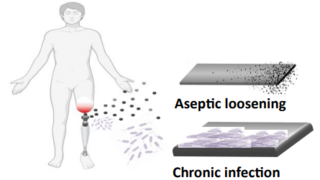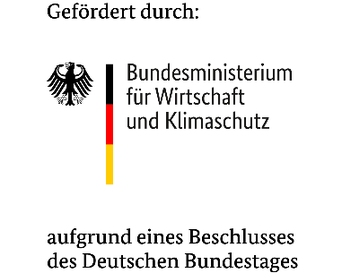Sie befinden sich hier
Inhalt
Der Einfluss von unterschiedlichen endoprothetischen Oberflächen auf das Biofilmwachstum klinisch relevanter Bakterienstämme
Die Problematik der Biofilmbildung klinisch relevanter Bakterienstämme und dessen Anhaftung auf verschiedenen Materialien der Endoprothetik wird in diesem Forschungsbereich betrachtet. Dazu werden unteranderem Staphylococcus epidermidis/aureus auf gängigen Implantatmaterialien (z. B. Titan/PE/CoCr) inkubiert. Ziel ist es, die Wechselwirkungen zwischen Implantatmaterialien und Biofilmbildung besser zu verstehen, um langfristig zur Reduktion implantatassoziierter Infektionen beizutragen.

Project: Implantation of devices can lead to two major complications: aseptic loosening or infection. The composition of implant materials can influence the formation of bacterial biofilms or contribute to aseptic degradation of the implant. Periprosthetic joint infections (PJIs), often characterized by biofilm formation on implant surfaces, are among the most challenging clinical infections to diagnose and treat. This research aims to investigate the underlying causes of these inflammatory complications, focusing on infections and aseptic loosening, and to support the development of more efficient diagnostic methods for chronic infections in PJIs.
Collaborators:




Kontextspalte
Leitung

Dr. sc. hum. Andreas Schilder
Forschungslabor & Entwicklung
Telefon 0621/383-4569
Telefax 0621/383-4549
Bei Interesse an einer klinischen/experimentellen Doktor-/ Master-/ Bachelor- oder Forschungsarbeit im Bereich Orthopädie, können Sie gerne mit uns Kontakt aufnehmen:
andreas.schilder@medma.uni-heidelberg.de
